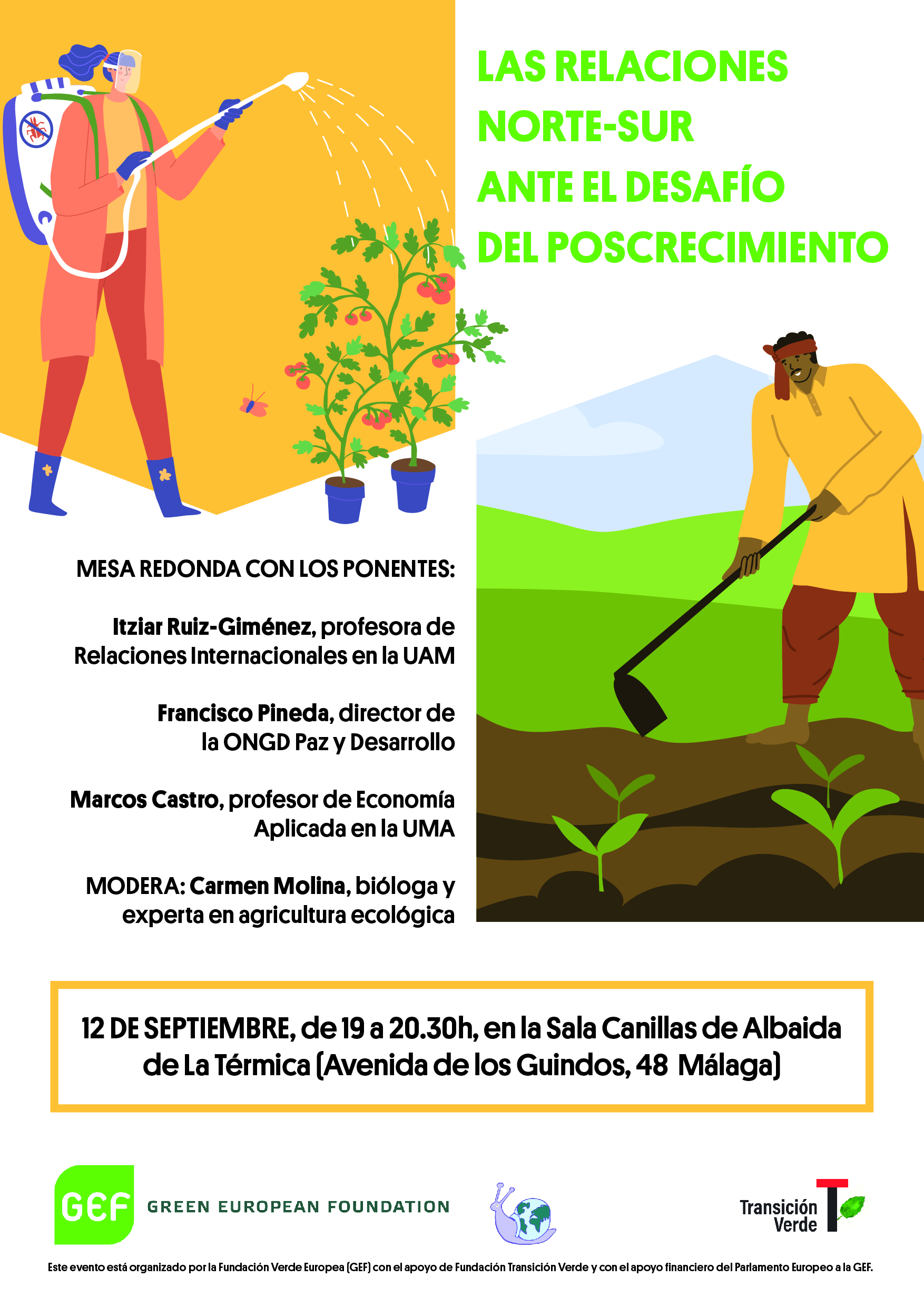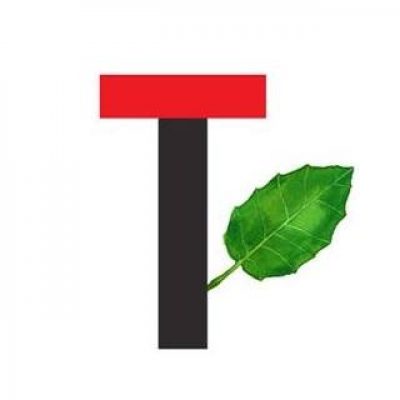
- This event has passed.
North-South Relations and the Post-Growth Challenge (Málaga)
2023

A Europe that abandons the path of growth opens up new perspectives for tightening relations with the Global South, moving further away from neo-colonialism and focusing on cooperation and an egalitarian relationship. In a context of climate crisis, war, competition for resources and increasing population movements, what are the main challenges for post-growth Europe in its relations with the global South and, more specifically, with Africa? Join us in this interesting debate.
About the event
The Club of Rome report “The limits to growth” was published in 1972 . These 50 years have gradually confirmed the validity of the study. However, despite the ever-closer risk of environmental and social collapse, the main focus of the economy remains profit growth, which is clearly unsustainable and profoundly unequal. In response to this crisis of the hegemonic socio-economic model, the degrowth/post-growth movements advocate for an economic model that overcomes the ecological limits of the planet, improves human well-being and reduces inequalities, challenging the growth dogma. In Europe, these movements are becoming increasingly popular among activists and scientists, and the debate has even begun open up at the institutional level.
Moving away from growth may represent an opportunity for the EU to increase its resilience and reduce its energy and raw materials dependence. However, this is something that undoubtedly poses important geopolitical and geostrategic challenges, including that of North-South relations. How would the EU’s post-growth approach influence relations with the global South, what would be the main tensions and synergies, and what challenges will it face in establishing cooperative and equal relations with these countries?
In this expert meeting, we will explore the advantages and also the challenges that the post-growth EU would face in its external relations with the Global South, and more specifically with the African continent. To this end, we will introduce into the equation the prospects of demographics and global population movements as a geopolitical factor, and as an opportunity for European foreign policy to put human rights, gender equality, sustainability of life and care, reduction of inequalities and a profound environmental transition at the centre.
Project background
This event is part of GEF’s project Geopolitics of a Post-Growth Europe, which explores the tensions between degrowth/post-growth and geopolitics. The project aims to ignite a conversation between critics of economic growth and progressive thinkers on foreign and security policy, who now often operate in separate circuits. It aims to find solutions beyond naïve anti-militarism and convenient belief in green growth. Find out more about the project and its findings at geopoliticspostgrowth.eu.
Speakers
- Itziar Ruiz-Giménez. Lecturer in International Relations at the Autonomous University of Madrid. Coordinator of the Group of African Studies and of the International Studies Group of this university. PhD in International Relations. Bachelor in Law and in Political Science.
- Francisco Pineda. Director of the NGDO Paz y Desarrollo. Advisor in International Relations and Cooperation, he has worked for 30 years in International Development Cooperation projects in Latin America, Africa and Asia.
- Marcos Castro. Professor of Applied Economics at the University of Malaga. PhD in Economics and Master in Territorial and Urban Planning Policy. His lines of work are ecological economics, critical economics and international cooperation.
- Moderator: Carmen Molina. Biologist and expert in ecological agriculture
Practicalities
Date and Time: 12th September, 7pm-8:30pm CEST
Location: La Térmica (Avenida de los Guindos, 48 – Málaga, Spain)
Language: The main language of the event will be Spanish
Registration: Open event. No prior registration is required
This event is organised by the Green European Foundation with the support of Fundación Transición Verde, and with the financial support of the European Parliament to the Green European Foundation.




